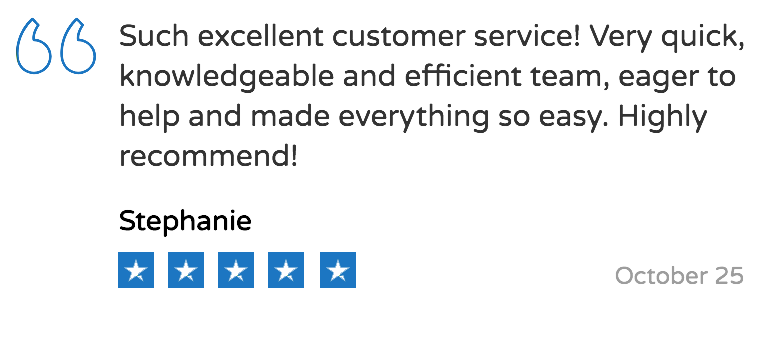Your
6+ Years Acing Homework | 350k+ Happy Students
- Homework
- Assignment
- Quiz
- Test
- Proctored Exam
- Essay
- Project
- Full Online Class
Get Homework Help on These Platforms
We have extensive experience doing homework for students on these online platforms boosting your grades
- Canvas
- Backboard
- Pearson MyLab
- MyMathLab
- MathXL
- WebAssign
- MyOpenMath
- ConnectMath
- HawkesLearning
- Connect
- Aleks
- D2L (Desire2Learn)
- Cengage
- Moodle
- WileyPlus
- MacGraw-Hill
- Straighterline.Com
- Sophia.Org
- Study.Com
- Many Others
Exploring the Impact of Technology in Today’s Accounting Education
As you navigate the dynamic world of accounting education, it’s impossible to ignore the vital role technology plays. It’s not just about crunching numbers anymore. Today’s accounting world is a blend of financial acumen and tech-savviness.
From cloud-based software to AI-powered analytics, tech innovations are reshaping how you learn and apply accounting principles. They’re not only streamlining complex processes but also providing real-time insights to drive strategic decision-making.
So, whether you’re an accounting student or a experienced professional looking to upskill, understanding the role of technology in modern accounting education is key. It’s time you embraced these tech advancements to stay ahead in the ever-evolving accounting field.

Software shaping future accountants
The Evolving Landscape of Accounting Education
Let’s hop right in and address the elephant in the room: The Age of Technology. It’s here and it’s reshaping accounting education in ways that are more profound and far-reaching than you might imagine.
Previously, you’d find accounting students hunched over piles of books, crunching numbers and unraveling complex financial concepts. The theory was all they had, and practical knowledge often fell by the wayside. But now, thanks to advancements in technology, they can immerse themselves in the practical application of what they’re studying. Think about how impactful that is!
Instead of just reading about how a massive financial scandal unravelled, students can actually use financial accounting software to understand how and where things went wrong. This ‘learn-by-doing’ approach not only enhances their grasp of the subject matter but equips them with the skills needed to navigate the real world of accounting.
The impact isn’t confined to just the students. Even accounting education professionals are witnessing the transformative effects of technology. It has opened up innovative methods of teaching – such as the widespread use of online teaching platforms and virtual simulations – that were previously unimaginable.
This transformation is made evident by two main changes:
- Shift from Traditional to Digital: Courses are including financial technology modules, ensuring that students are well-versed in using the latest accounting software.
- Increased Emphasis on Practical Skills: There’s a significant shift towards a ‘learn-by-doing’ approach involving case studies, simulations and practical assignments.
Let’s take a look at these changes in a simpler format:
| Traditional Methods | Evolving Methods |
|---|---|
| Focus on theoretical knowledge | Emphasis on practical skills |
| Limitations in the use of teaching aids | Increased use of simulations and AR/VR for teaching |
| Absence of emerging technologies in the curriculum | Inclusion of FinTech, blockchain, AI in the curriculum |
What these changes signify is clear: the world of accounting education is undergoing a significant metamorphosis, and it’s all due to the pervasiveness of technology. As the future hurtles toward us, you can’t afford to lag behind. The tools are here. The revolution is here. It’s time to step into the future of accounting.
Embracing Technological Innovations in Accounting Education
In the wake of digitalization, it’s time you understand the gravity of incorporating technology in accounting education. The impact is profound, reshaping the world entirely from traditional methods to more practical, real-world applications.
Venturing into this technologically advancing era, virtual simulations and online platforms have transformed into indispensable tools for accounting education. As a student, you’ll no longer be confined to textbook theories; instead, you’ll be plunged into real-life situations using virtual simulations. This hands-on approach elevates learning, helping you gain a deeper understanding of accounting concepts.
Trust the stats. According to a survey conducted by the American Accounting Association, an astounding 85% of accounting educators now use some form of educational technology, and that figure is expected to rise.
| Percentage | |
|---|---|
| Accounting educators using technology | 85% |
Online platforms have taken the stage, offering a plethora of resources – right at your fingertips. Web-based applications like QuickBooks, Sage, or Peachtree provide practical training on accounting software used in the industry, boosting your job-readiness.
However, it isn’t just about learning the tools of the trade; emerging technologies are equally essential. As future accountants, embracing technologies like blockchain, AI, and data analytics can give you an edge, setting you apart in the field.
That being said, changes call for adaptability. The shift from traditional to digital methods could seem daunting. Yet, as accounting education professionals, it’s crucial that educators adopt these innovative teaching strategies for equipping the next generation of accountants. Remember, staying ahead requires embracing change, and in today’s world, that change is technology.
Cloud-based Software: Transforming the Learning Experience
In this ever-evolving field of education, cloud-based software has become the driving force behind the transformation of accounting education. You’re now finding an increased emphasis on practical skills as well as the inclusion of emerging technologies in the curriculum.
Why is Cloud-based Software Important?
Cloud-based software permits students to access data, tools, and resources remotely, enabling a flexible and individualized learning experience. It completely eradicates the sole dependence on physical classrooms and textbooks. Instead, it promotes interactive learning that mimics real-world accounting scenarios.
Consider this:
| Benefit of Cloud-based Software | Explanation |
|---|---|
| Enhances Participative Learning | It lets students engage with lessons from anywhere |
| Provides Flexibility | Adapt lessons around student’s lifestyle and commitments |
| Offers Real-time Data Analysis | Empower students to learn, analyse, and apply accounting data |
Impacting Teaching Methods
Cloud-based software is not just transforming the student learning experience; it’s also revamping teaching methods. Professors can use innovative platforms to communicate, track progress, and share resources.
Here are few significant benefits that cloud-based software offers:
- Adaptable Teaching: Course modules can easily be customized to cater for different learning styles.
- Efficiency: Enables easy tracking of student progress, saving valuable time.
- Enhanced Communication: A platform for seamless interaction between teachers and students.
New Generation Tools
Emerging technologies such as blockchain, AI, and data analytics are making significant inroads into the curriculum. These tools, most often delivered through the cloud, are providing students with a cutting-edge education that’s on par with the latest industry standards.
How are they transforming Accounting Education?
- Blockchain is offering transparency and security that’s transforming the world of financial transactions.
- Through AI, repetitive tasks are automated, freeing up time for analysis and strategy.
- Data Analytics tools are enhancing decision-making competencies by providing highly accurate predictions.
Embrace the morphing environment, and you’ll find yourself at the forefront of the next wave in accounting. Adapt to this shift, integrate emerging technologies into your teaching, and you’ll craft an innovative, tech-driven future for accounting education.
The Power of AI-Powered Analytics in Accounting Education
Stepping into the world of AI-powered analytics, you’re opening a new vista of possibilities in accounting education. Here’s how it’s shaking things up.
A new approach to learning, this technology fosters an interactive and practical understanding of complex accounting concepts. You can appreciate its power when you see it transform the dry, theoretical aspects of accounting into dynamic, easily digestible content.
Additionally, AI-powered analytics tools provide practical skill development. It comes into play during tasks like:
- Analysing financial patterns
- Detecting anomalies
- Foreseeing future trends
These are abilities that today’s accountants need to possess. Combining these skills with the knowledge gained through conventional accounting education, you’re on the right track to becoming an effective, future-ready accounting professional.
Moving onto AI’s contribution to overall learning strategies, you’ll find that it introduces automated, custom-tailored learning paths. Thanks to machine learning and predictive analysis, AI recognizes your learning patterns and adapts the curriculum to your needs.
In essence, AI-powered analytics helps to bridge the gap between academic education and real-world accounting tasks. What this means is you’re not just learning these concepts, but also applying them in realistic scenarios.
These aren’t the only benefits though. Teaching professionals also stand to gain from AI integration. Innovative tutoring tools like intelligent virtual assistants, predictive analytics for tracking student progress, and data-driven insights into effective teaching methodologies are some of the many upsides.
Here’s a fact: The integration of AI in accounting education isn’t just a fleeting trend, it’s the future. By adopting such technology, you’re gearing up for the evolving dynamics of the accounting profession.
One thing is clear: whether you’re a learner stepping into the field of accounting or an educator looking to amplify your teaching strategies, AI-powered analytics is a tool worth harnessing.
Keeping up with this trend, accounting education will continue to evolve. And though there’s still more to be explored, AI-powered analytics has certainly painted a promising picture for the future of accounting education.
Real-time Insights for Strategic Decision-making
Technology has taken accounting education to unprecedented heights, and AI is right at the forefront. The real power of AI comes into play when it’s used to deliver real-time insights for strategic decision-making.
Real-time data analysis, enabled by powerful AI-driven analytics, allows both educators and students to detect patterns and trends in financial data instantly.
Examples of AI-powered tools for real-time data analysis in accounting are plentiful:
- Learning platforms that come equipped with AI-backed analytics. These applications help users understand the ins and outs of financial data by presenting complex information in a clear, understandable format.
- Intelligent virtual assistants, which can digest and analyze massive amounts of data in seconds, providing immediate responses based on that analysis.
These tools pave the way for dynamic teaching methods, enabling educators to deliver lessons that are both interactive and relevant.
Consider an accounting class where students are tasked with analyzing financial data. Traditional teaching methods might take weeks to collate data, analyze it and come up with findings. With AI-powered technology, students can receive instant analysis, allowing them to see the results of different scenarios in real-time. Therefore, students can make well-informed decisions quickly and efficiently, mirroring the fast-paced decisions that need to be made in the real world of accounting.
AI can also be used to provide personalized learning experiences, tailored to the individual needs of students. This is enabled by AI’s ability to process and analyze student data to predict trends and identify areas where a particular learner might struggle.
Having real-time insights at their fingertips allows students to deeply engage with the accounting material, transforming the learning process from static and theory-heavy to dynamic and practice-oriented.
While change may always induce some degree of uncertainty, one thing is clear – the integration of AI in accounting education holds vast potential and paints a promising picture for the future of the field.
The Growing Need for Tech Skills in the Accounting Field
In today’s increasingly digital world, you might see a significant shift in accounting. This isn’t your grandpa’s world of ledger books and mechanical calculators; instead, you’re stepping into a dynamic terrain where technology takes center stage.
Just as the incorporation of virtual simulations and online platforms has revolutionized accounting education, the rapid emergence of more complex technologies demands a new set of skills from aspiring accountants. Have you noticed? Blockchain’s being touted as the next big thing in secure transactions; AI’s potential for data analysis is incomparable. You need to get familiarized with them if you’re to establish a strong foothold in this career.
But believe us, these aren’t just toppings on an otherwise staple menu of skills. They’re quickly becoming the bread and butter of the modern accounting field, where tech savviness is valued as much as traditional accounting skills.
| Technologies | Importance in Accounting |
|---|---|
| Blockchain | Secures transactions, boosts efficiency |
| AI | Analyzes data, provides actionable insights |
Undoubtedly, Cloud-based accounting software has erupted as a bonafide game-changer. Why, you ask? It allows for real-time analysis, sure. But couple that with enhanced participative learning and you’ve got a recipe to not just learn, but excel. Remember, this is a field not just about ‘what?’, but ‘how fast?’.
Additionally, itemizing through heaps of paperwork might soon become an anecdotal joke, with AI-powered analytics poised to take its place. These tools have the ability to simplify complex financial documents and instantly generate understandable reports. This is why an understanding of AI-powered analytics isn’t optional, it’s obligatory.
Online learning platforms, intelligent virtual assistants are not sci-fi anymore. They’re part of the here and now, and a big part at that. Adopting these tools can lead to a far more dynamical and personalized learning experience. So embrace the change, and be a part of the technological transformation shaping the accounting field.
Conclusion
Embracing the wave of technology in accounting education isn’t just a trend – it’s a necessity. As you’ve seen, technologies like blockchain, AI, and data analytics are reshaping the accounting world. They’re not just buzzwords; they’re tools that can simplify complex financial documents and generate clear, understandable reports. Virtual simulations and online platforms are enhancing participative learning, while cloud-based software offers the benefits of real-time data analysis. As an aspiring accountant, you can’t afford to be left behind. The tech skills you acquire today will be your most valuable assets tomorrow. So, jump into the tech transformation and make it an integral part of your accounting education. It’s not about keeping up with the times, but being ahead of them.
REQUEST A QUOTE Chat, Text or Email Us and Get a Quote Within Minutes
Order NowThe difficulty of a subject can be and is a big challenge for students. When concepts are hard to grasp, especially in subjects like advanced mathematics or statistics, these students see no other choice but to reach out to websites that provide homework assistance. This is especially the case with students that are taking their classes online who are missing the study group experience with their peers or hearing an in-person lecture on campus.
An overwhelming workload from multiple classes can make it challenging for many students to dedicate the necessary time and energy to all those homework assignments. When faced with deadlines for essays, projects and exams all due around the same time, the pressure can easily push students to hire someone to do that coursework. It is easy to assume that students can handle everything, but when faced having to free up countless hours to manage a heavy workload, the time is just not there.
Stress and anxiety about meeting fast approaching deadlines can be extremely overwhelming for students. The fear of not having studied enough to pass that test or exam when faced with increasing performance expectations by the academia can be paralyzing. This can lead to a situation where students feel that the only way to make it through is by paying someone to do their homework and make it one step closer to graduation.
A lack of time is another major factor driving students to outsource their homework. Busy schedules filled with extracurricular activities, part-time jobs, and family commitments can leave little to no room for homework and exams. This lack of available time is particularly challenging for college students who are trying to balance overwhelming academic responsibilities with personal development and a fulfilling social life. There are many aspects of life that are more important and hiring homework help services is the better alternative for achieving a balance.
Real Customer Reviews













